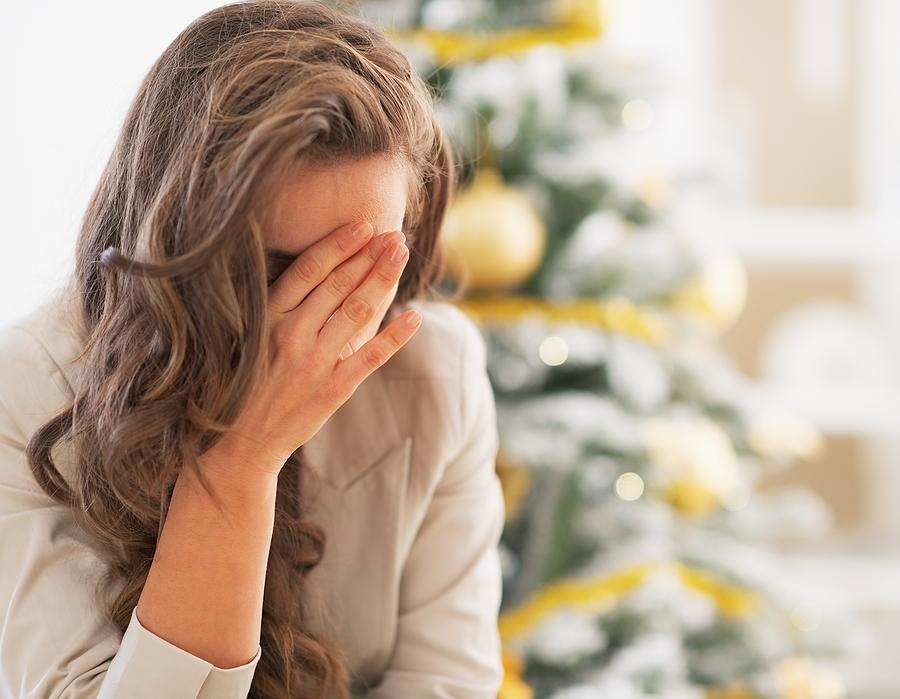There is something of an irony that a time that has been described as the most wonderful of the year is also one that can cause a lot of unexpected stress, isolation, undue pressure and emotional turmoil.
All of these can affect mental health, and along with seasonal affective disorder and other winter-specific concerns, are reasons why people tend to start the process of finding the right therapist.
Unfortunately, whilst some people realise that they may need support to get through a difficult time, others may feel guilty about feeling less-than-festive, especially in comparison to friends and family members.
The spirit of the season can bring people together but it can also highlight absence and put pressure on people who are already operating close to the point of burnout.
Understanding that it is okay to feel this way can help, as can having support, so with both of these in mind, here is how festive holiday stress can manifest, why it happens and what support is available.
What Is Festive Stress?
Festive stress is a general, non-psychological term for the worsening of mental health during a holiday season. This typically means Christmas and other winter holidays but can mean any type of season associated with celebration, as well as birthdays and even holidays and break periods.
There are a lot of connected elements that cause it, particularly when it comes to winter festivities as there are a lot of mental health, social, cultural, psychological and physiological factors that compound festive stress and worsen one’s current wellbeing.
Typically, especially around winter, it is the time when the most is happening in many people’s lives when they have the least capacity to manage it, which is often the result of SAD, burnout and an increased risk of illnesses from seasonal viruses, which can further affect energy levels.
Whilst these are more general factors that can cause festive stress, they often manifest in very specific ways.
What Causes Festive Stress?
Festive stress often has particularly personal forms, which is fitting for a festive season that is often inherently reflective and family-focused.
There are a lot of parts to Christmas that make it so special for some, but for others, each of these elements could potentially be a painful trigger.
A common example of this is the first Christmas after a significant personal loss, which can be a death in the family or a relationship that has ended. It can even be more general regrets or anxieties about the year that has passed or the new year to come.
This can cause bitter, painful memories to return, and this can feel exceptionally overwhelming, especially if your Christmas traditions were built around this particular person or people.
This is a particularly potent issue, one that is best navigated with the help of a therapist and the help of a strong support network to ensure that a person does not feel they need to face the season alone.
Sometimes, close proximity to family members that one would otherwise be distant from can also have a negative effect.
There is also an inadvertently idealised type of Christmas, often depicted in holiday standard films, with family meals, romance, idealised decorations and homes, a “perfect” set of traditions and a lot of gifts.
This can cause festive stress for a lot of different reasons. Many presents and traditions can be quite expensive when they accumulate, and there’s often considerable perceived (and in some cases actual) pressure to live up to standards beyond enjoying time with family and friends.
On the other hand, some people have the opposite feeling; they love the singular focus of the holiday season and the opportunity to reconnect with others but feel deflected at just how brief this time together truly is.
In general, the festive season can really isolate people who do not share the spirit of goodwill, not only feeling bad for the many reasons that have caused this negative mental state but also feeling worse because of the guilt they have about their own feelings.
There is an importance to avoid inadvertent toxic positivity during the festive season. A person’s feelings do not suddenly become invalid because they are not commensurate with the prevailing spirit of the season.
As well as this, sometimes festive stress causes disruptions that can exacerbate other mental health concerns, such as changes to routines, overstimulation, the closure of many mental health services over the more numerous bank holidays found around the festive season and expectations about the kinds of indulgences common during holidays.

